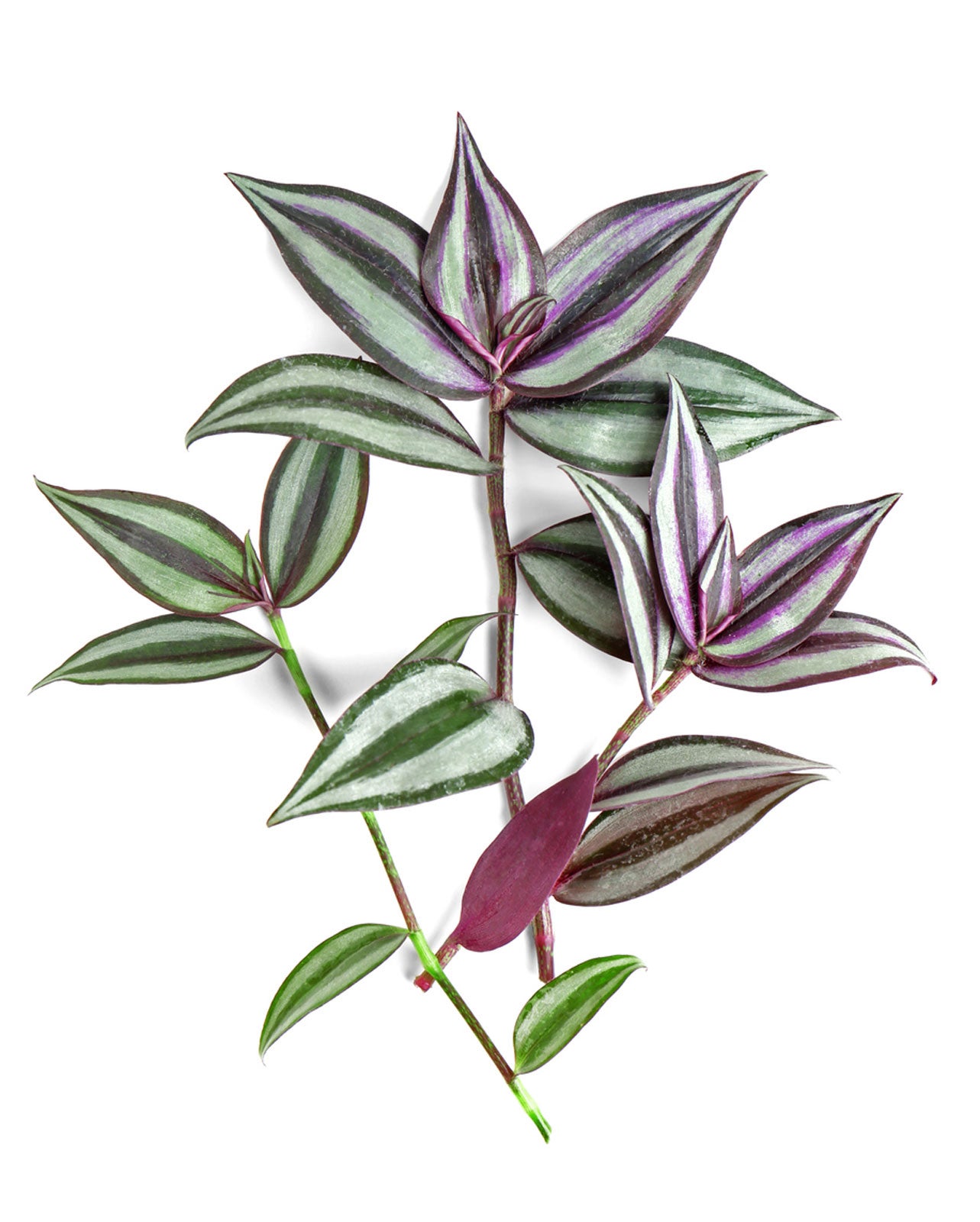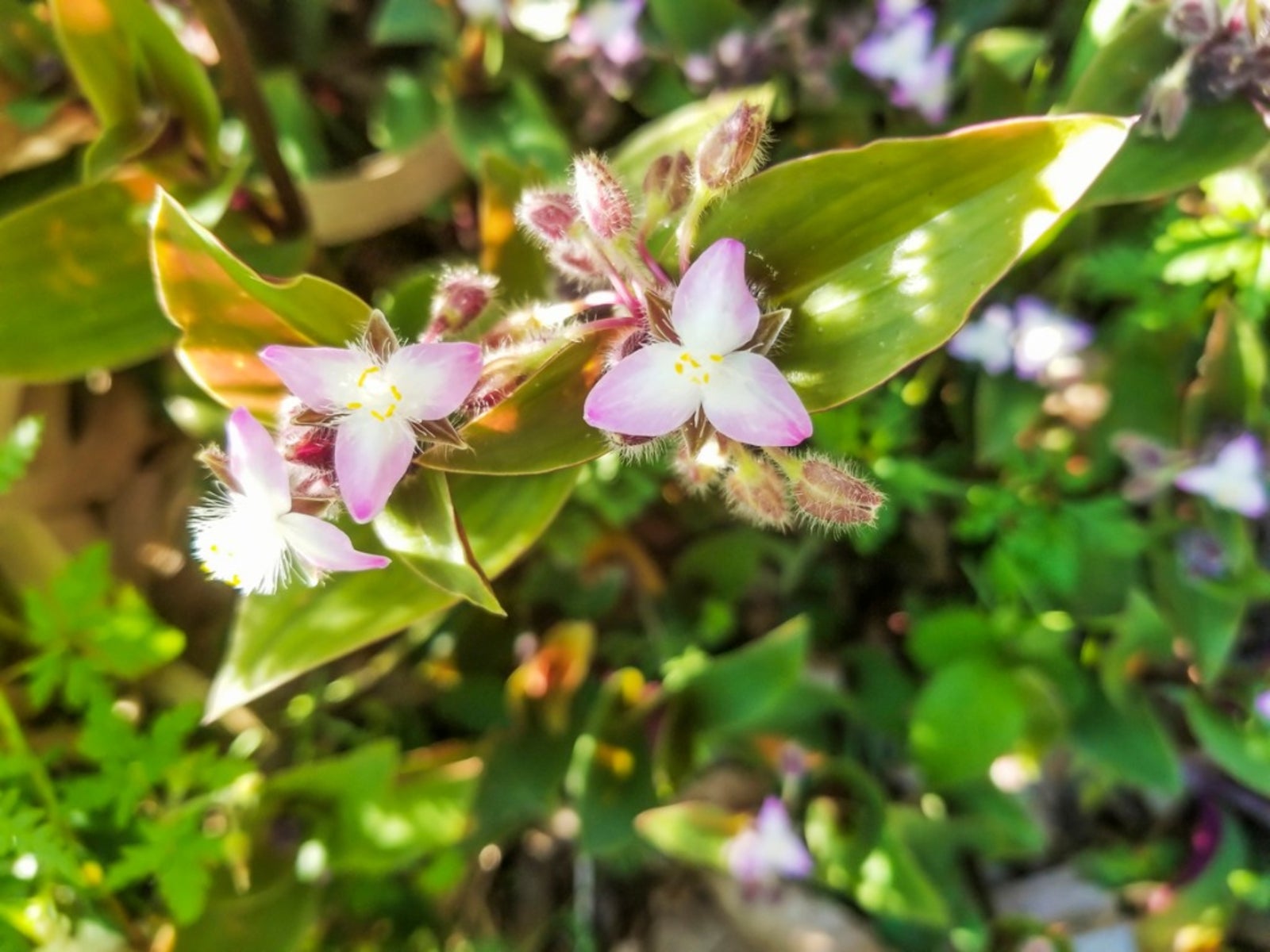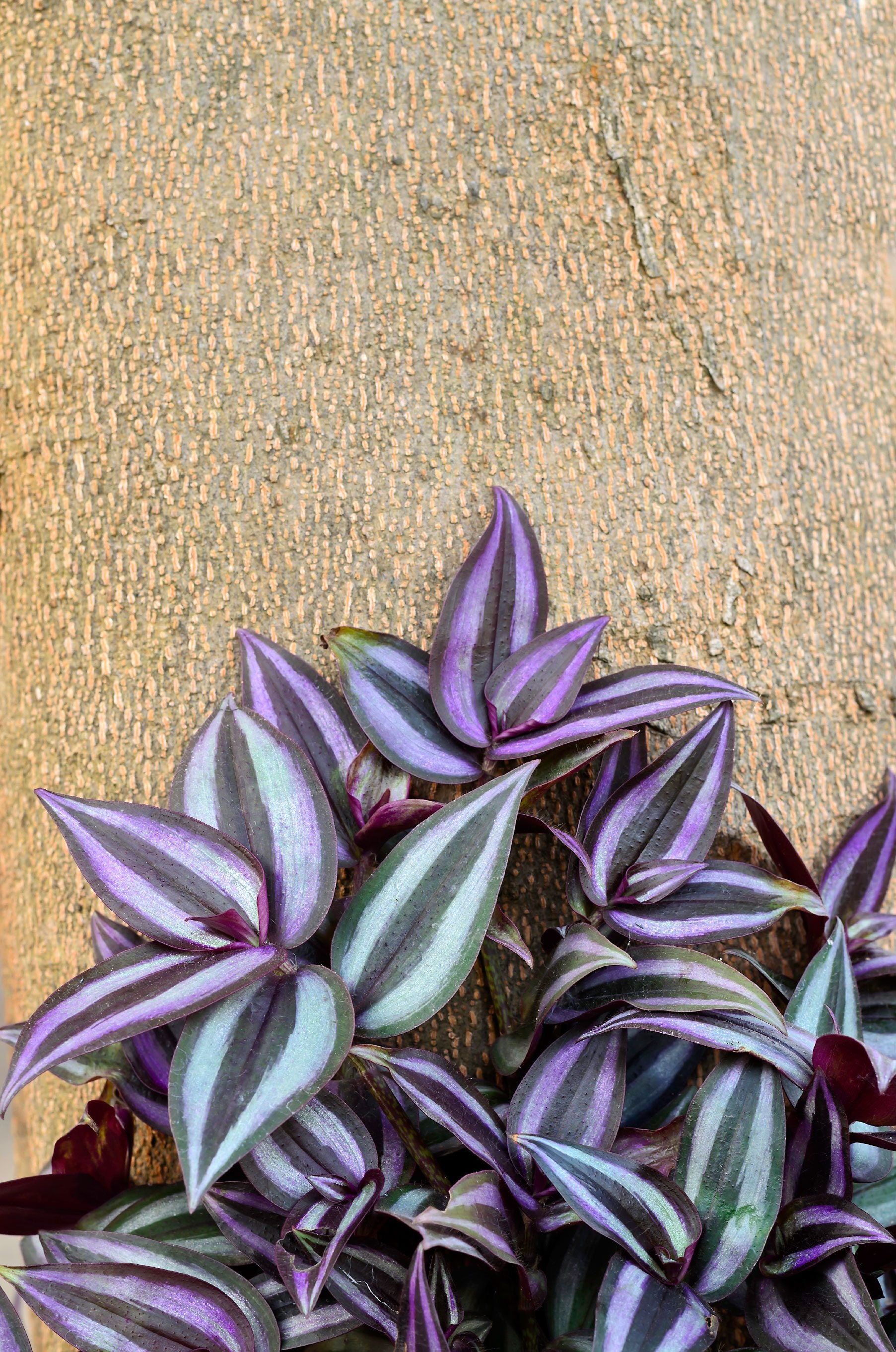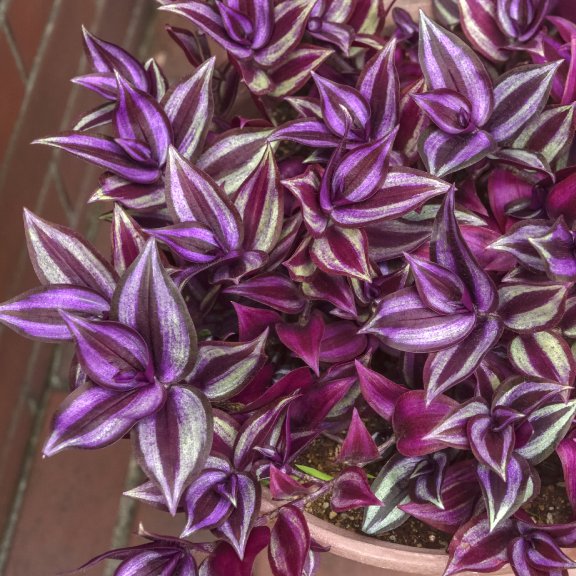Rooting Inch Plants: How To Propagate Tradescantia Inch Plants


Inch plant (Tradescantia zebrina) is a pretty houseplant that creeps over the edge of containers for a nice effect alone or with a mix of plants. You can also grow it as a groundcover outdoors in warmer climates. It’s an easy plant to grow, and it’s tough and hard to kill. To get more of it to fill in pots and beds, you can easily take cuttings.
About Inch Plants
Inch plant is famed as one of the most popular houseplants, and not just because it's so tough... although that helps. Even if you don’t have a green thumb, you can still grow this plant.
Inch plant is equally popular for its pretty colors and foliage. The wandering, creeping growth pattern makes it perfect for any container, but especially hanging baskets. The foliage is green to purple and can also be striped. The flowers are small and pretty, but it is the foliage that really makes an impact.
How to Propagate Inch Plant
Inch plant cutting propagation is the easiest way to get new plants without buying more at the nursery. Take cuttings with a sharp, sterilized knife or shears. Cuttings should be 3 to 4 inches (7.6 to 10 cm.) long.
Choose a tip that looks healthy and has new growth. Make the cut right below a leaf node and at a 45-degree angle. Take a few cuttings to make sure you get one or two that root well and that you can plant later.
Start the rooting process in water. First, remove the bottom leaves on the cuttings and then stick them in a glass of water. Leave them for a week or so in sunlight and you’ll begin to see little roots form.
Once your cuttings have roots, you can put them in a container with standard potting soil. Put it in a location that will get medium to bright light with temperatures between 55 and 75 degrees Fahrenheit (13-24 C).
Gardening tips, videos, info and more delivered right to your inbox!
Sign up for the Gardening Know How newsletter today and receive a free copy of our e-book "How to Grow Delicious Tomatoes".
And that’s all there is to rooting this beautiful plant.

Mary Ellen Ellis has been gardening for over 20 years. With degrees in Chemistry and Biology, Mary Ellen's specialties are flowers, native plants, and herbs.
-
 Looking For Plants To Give You The Soft And Fuzzies? Try These 5 Fuzzy Leaf Plant Options
Looking For Plants To Give You The Soft And Fuzzies? Try These 5 Fuzzy Leaf Plant OptionsLovers of texture, drama, silver foliage and tactile plants will adore these special sensory garden additions. These fuzzy leaf plant options will leave you all aglow
By Susan Albert
-
 Get Ready For A Summer Of Hummers! Grow These Full Sun Hummingbird Plants and Flowers
Get Ready For A Summer Of Hummers! Grow These Full Sun Hummingbird Plants and FlowersIf you’re lucky enough to enjoy a sunny backyard, make sure you are maxing out on your pollinator opportunities and grow these full sun hummingbird plants and flowers
By Tonya Barnett
-
 Killing Inch Plants: How To Get Rid Of Inch Plant Weeds In The Garden
Killing Inch Plants: How To Get Rid Of Inch Plant Weeds In The GardenInch plant (Tradescantia fluminensis) is very invasive and should be treated with caution. Click here to learn about inch plant weed control.
By Liz Baessler
-
 Growing Inch Plant Outside: How To Plant Inch Plant Outdoors
Growing Inch Plant Outside: How To Plant Inch Plant OutdoorsThe inch plant is truly one of the easiest plants to grow as a houseplant due to its adaptability. But can inch plant survive outdoors?
By Amy Grant
-
 Inch Plant Care Guide: How To Grow Tradescantia Zebrina
Inch Plant Care Guide: How To Grow Tradescantia ZebrinaInch plants are beloved houseplants known for their fast growth and easy propagation. Read on to learn more about inch plant care.
By Mary Ellen Ellis